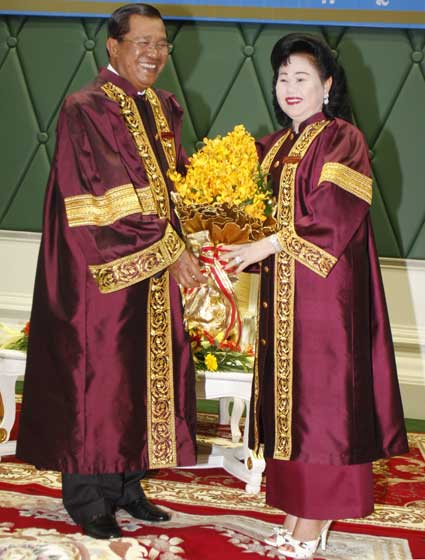Radio Free Asia
The brother of Cambodian Prime Minister Hun Sen has requested a court official to drop a sexual harassment suit against two of his friends, drawing condemnation from rights groups.
Hun Sen’s older brother Hun San made the request in a letter to Banteay Meanchey Provincial Court Chief Prosecutor Phann Vanrath, a copy of which was seen by RFA. The prosecutor’s office confirmed with RFA that it had received the letter on Friday.
In the letter dated Dec. 3, 2011, Hun San, who is the director of an agency under the Ministry of Public Works and Transportation, calls the harassment claim against Cambodian Mine Action Center official Oum Socheat and businessman Thang Pisith “groundless.”
“Please forgive me that I can’t meet you in person,” reads the letter by Hun San, who is the director of the Kampuchea Shipping Agency & Brokers Department.
“I would like to request that you, brother prosecutor, please help intervene and aid Oum Socheat and Thong Pisith to put an end to the Nov. 13, 2011 accusation made by a waitress in a Stung Treng restaurant.”
Hun San questioned the accusation against the two middle-aged men, who allegedly verbally harassed and groped 25-year-old Hy Theavy while she served them, saying they would not have done so with others present at the table.
“As mentioned above, I ask that the prosecutor please intervene and drop the case. I hope that the prosecutor will help in ending the suit.”








































